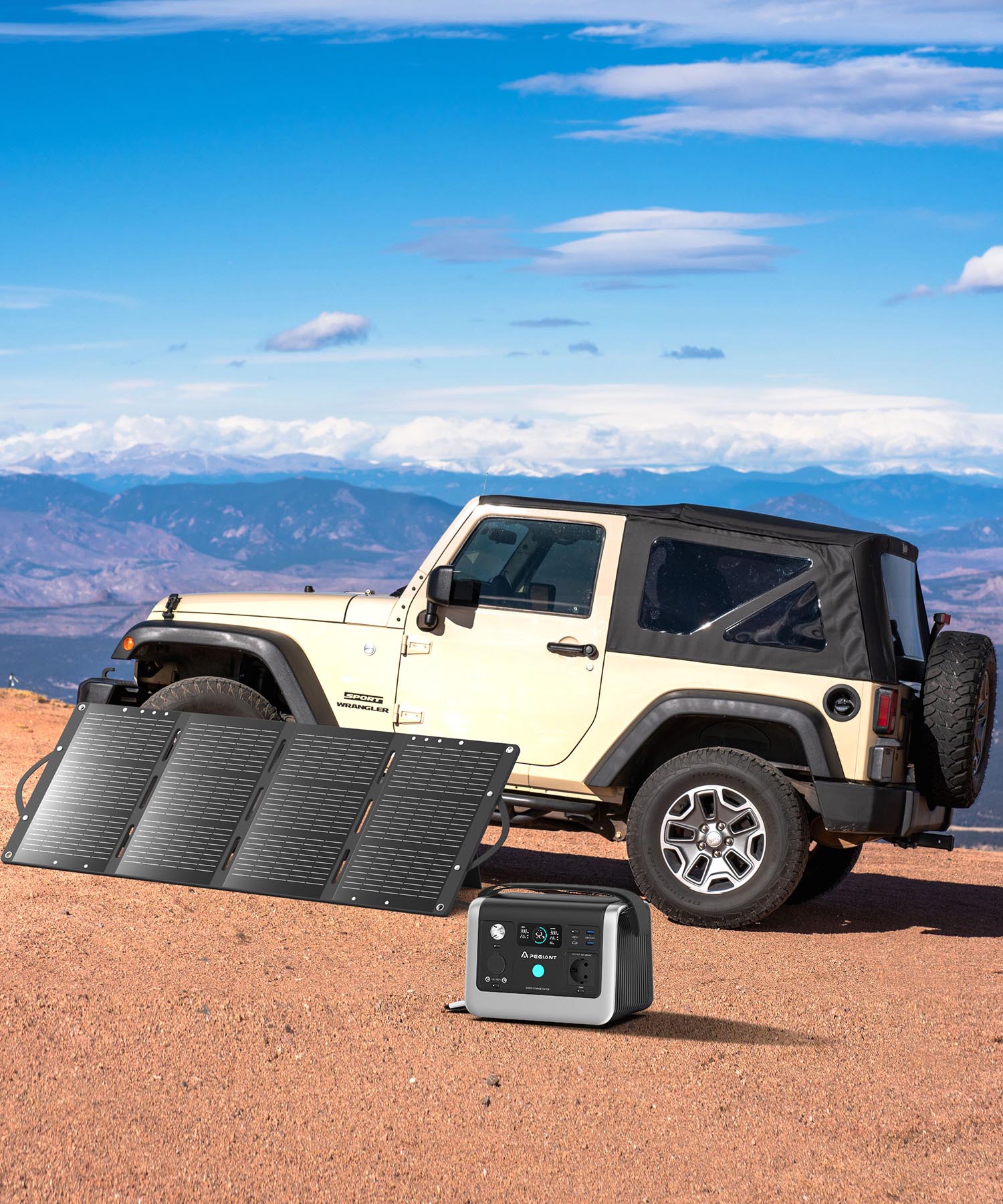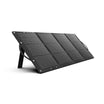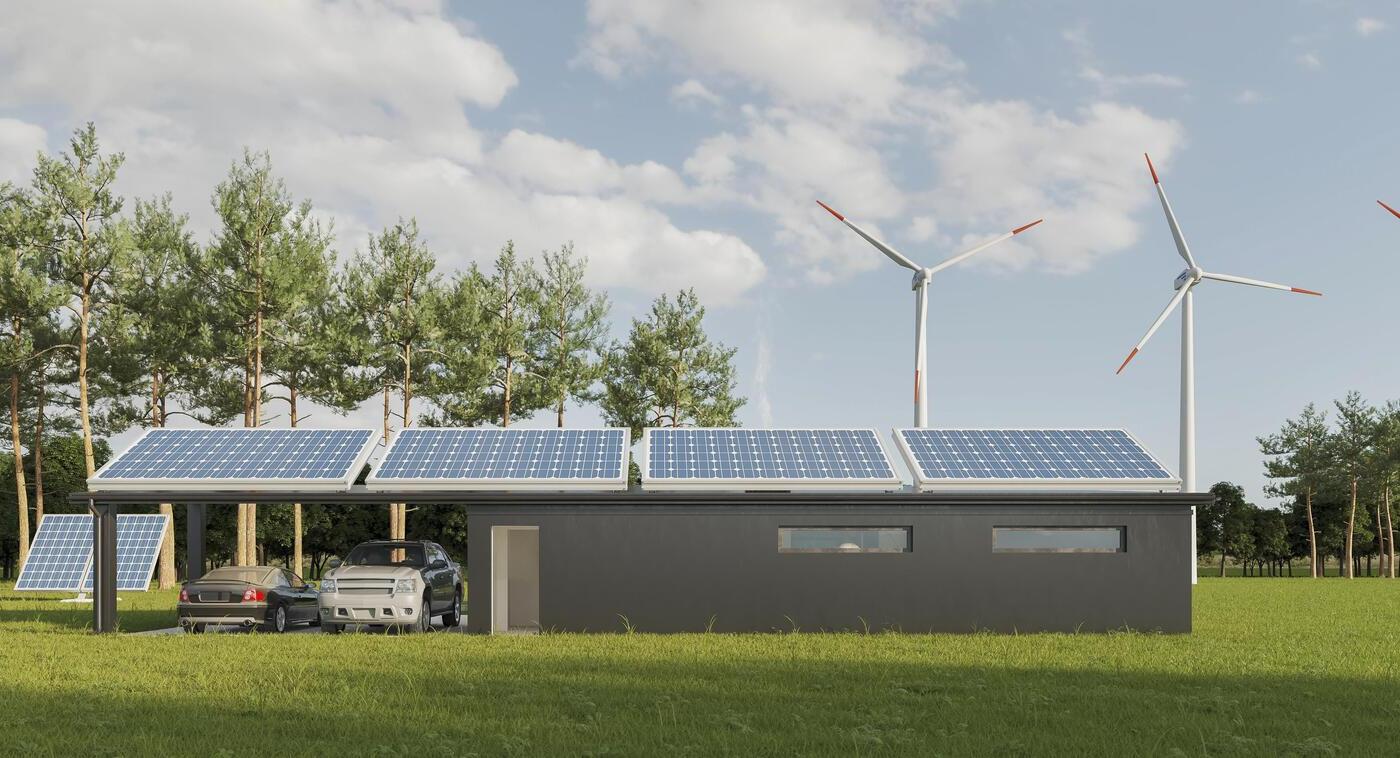1. Introduction to Solar Energy Use
In a world seeking sustainable solutions, solar energy shines like a superstar. Imagine this: a never-ending stream of clean, renewable energy radiating from the sun. That's solar energy, a timeless force that has illuminated our world for generations. But it's not just sunlight – it's the special energy that drives those rooftop solar panels, portable solar generators, and other devices powered by the sun, converting sunlight into electricity. Let's unravel the mystery of solar energy by learning what is solar energy and the uses of solar energy.
2. What is Solar Energy

Solar energy is the abundant and renewable energy harnessed from the sun's rays. It serves as a natural power source that we capture through solar panels to generate electricity. This form of energy has been utilized for centuries, demonstrating its historical significance in human development.
The process of converting sunlight into usable energy involves the use of solar panels, specifically Photovoltaic (PV) cells. These cells absorb sunlight and transform it directly into electricity. Think of solar panels as sophisticated systems that collect sunlight and magically turn it into the electricity we use to power our homes, gadgets, and more.
3. What are the Uses of Solar Energy
Solar energy emerges as a sustainable and eco-friendly power source, alleviating environmental pressures and offering a renewable solution. Beyond its environmental benefits, solar power finds remarkable utility in everyday life. Its main applications include as follows.
3.1 Use Solar Energy for Outdoor Charging
Portable solar power is gaining significant attention as a go-to energy source. From outdoor camping to road trips and even outdoor office setups, solar generators powered by the sun are becoming indispensable for outdoor enthusiasts. These generators operate primarily in sunlight, offering a convenient, on-the-go power solution that's location-independent, free of charge, and perpetually available.

3.2 Use Solar Energy for Home Powering
Solar energy plays a vital role in powering homes through various means. Rooftop solar water heaters utilize the sun's energy to heat water, providing an eco-friendly and cost-effective alternative to traditional water heating systems. Additionally, electrical devices in households, such as heating systems, can be powered by solar energy, reducing reliance on conventional electricity sources and minimizing utility expenses. Moreover, solar-powered outdoor lighting, solar air conditioning systems, are among the innovative ways homeowners can leverage solar energy in their day-to-day lives. These applications not only contribute to energy savings but also contribute to reducing the carbon footprint of households, paving the way towards a more sustainable future.

3.3 Use Solar Energy for Off Grid Living
Solar energy also plays a role like a cornerstone for off-grid living, providing a sustainable and reliable power source independent of traditional electrical grids. Off-grid dwellers utilize solar panels to generate electricity, enabling them to power essential appliances and devices such as lights, heaters, and refrigerators. Moreover, solar energy systems coupled with battery storage ensure a continuous power supply, allowing off-grid homes to function self-sufficiently without relying on external power sources. This application of solar power in off-grid living showcases its versatility and vital role in enabling independent and environmentally friendly lifestyles.

3.4 Use Solar Energy for Transportation
Solar energy also can be used as a power source for various modes of transportation. Common vehicles such as buses, trains, subways, and cars can harness solar power to fuel their operations. Embracing solar energy in transportation not only contributes to reducing environmental pollution but also fosters the evolution of traditional energy sources utilized by these modes of transit. The integration of solar power in transportation marks a pivotal step towards sustainable mobility, signaling a shift towards cleaner, more environmentally conscious methods of powering vehicles.

3.5 Use Solar Energy for Lighting
Solar-powered streetlights also represent a significant adoption of solar energy for daily use. These streetlights operate by harnessing solar panels to convert sunlight into electricity, which powers the lights during the night. This lighting systems offers various advantages. Firstly, it promotes energy efficiency by utilizing renewable solar energy, contributing to decreased reliance on fossil fuels and reducing greenhouse gas emissions. Additionally, solar-powered streetlights often require minimal maintenance and have lower operational costs compared to conventional streetlights powered by the grid. This not only results in cost savings but also ensures consistent and reliable illumination for public spaces, enhancing safety and security in communities.

3.6 Use Solar Energy for Industries
Commercial and industrial sectors are increasingly leveraging large-scale solar installations to power their factories and manufacturing units. This significantly reduces carbon emissions and promotes sustainability. Solar applications in industrial settings include powering manufacturing units, providing cost-effective and eco-friendly energy sources that streamline operations. These solar solutions exemplify a commitment to green practices while offering economic advantages to industries.

4. What Are the Benefits of Using Solar Energy
4.1 Solar Energy is Good for the Environment
Solar energy is environmentally friendly due to its clean and sustainable nature. Unlike conventional energy sources like fossil fuels, solar power generation does not produce harmful greenhouse gas emissions or air pollutants. By harnessing energy directly from the sun, solar panels generate electricity without contributing to air or water pollution, thus significantly reducing the carbon footprint and preserving the environment for future generations.
4.2 Solar Energy is Saving Costs
By generating electricity from solar panels installed on rooftops or other areas, individuals and businesses can reduce their reliance on traditional utility grids. This reduced dependency results in lower electricity bills over time. Additionally, the initial investment in solar panels can lead to long-term financial benefits as solar systems require minimal maintenance and operational costs compared to conventional energy sources, ultimately translating into significant savings in the overall expenditure on electricity.
4.3 Solar Energy will Enhance Electrical Security and Stability
During unexpected power outages or disruptions in traditional electricity grids, stored solar energy in batteries or solar systems ensures a continuous and stable power supply. This capability minimizes the impact of outages, reduces the risk of electrical disruptions, and enhances the overall reliability of electricity, especially in areas prone to blackouts or grid failures.
4.4 Solar Energy will Boost Industry Growth and Create Jobs
As the demand for solar technology increases, it encourages innovation, research, and development in the field of clean energy. The growth of the solar industry not only expands the market for solar products and services but also creates job opportunities across various sectors, including manufacturing, installation, maintenance, and research.
5. Conclusion
Undoubtedly, its growing adoption as a sustainable and clean energy source marks a pivotal shift towards a more environmentally friendly and economically viable energy landscape. With continuous advancements in solar technology, declining costs, and heightened awareness about environmental conservation, solar energy is poised to play an even more significant role in meeting global energy demands. Using solar energy not only provides significant opportunities for innovation, economic growth and job creation in the field of renewable energy, but also ensures that the planet moves towards a greener, more sustainable future.










Leave a comment
This site is protected by hCaptcha and the hCaptcha Privacy Policy and Terms of Service apply.